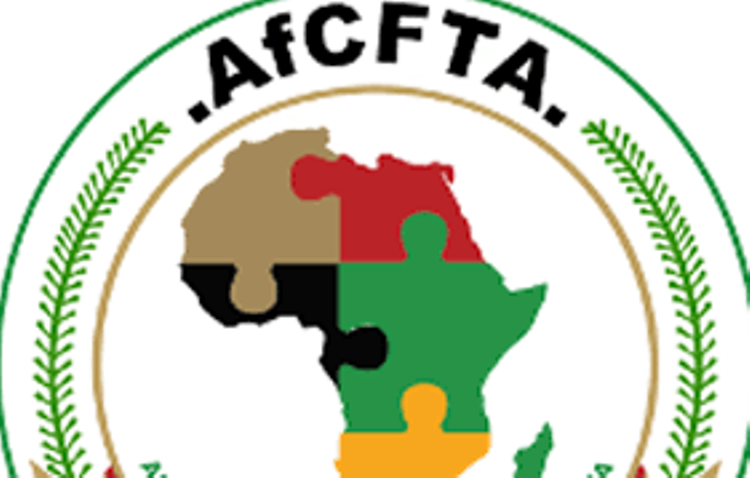SA and Lesotho Strengthen Trade Ties to Boost Regional Growth and AfCFTA Goals
The gathering follows the recent signing of a Memorandum of Understanding (MoU) on Economic Cooperation, finalized earlier this year during the South Africa–Lesotho Bi-National Commission (BNC).

- Country:
- South Africa
South Africa and Lesotho have reaffirmed their commitment to strengthening bilateral trade and investment relations, following high-level talks held in Pretoria on Tuesday. The engagements, led by the Department of Trade, Industry and Competition (dtic) and the Lesotho Ministry of Trade, Industry and Business Development, are aimed at enhancing economic cooperation, leveraging trade agreements, and advancing regional integration.
The meeting forms part of a week-long study mission by the Lesotho delegation focused on regulatory frameworks for indigenous plants and leveraging trade partnerships, including the Southern African Development Community (SADC) – European Union (EU) Economic Partnership Agreement (EPA). The mission also seeks to deepen the exchange of best practices in trade policy and industrial development between the two neighbouring countries.
Deepening Bilateral Economic Cooperation
The gathering follows the recent signing of a Memorandum of Understanding (MoU) on Economic Cooperation, finalized earlier this year during the South Africa–Lesotho Bi-National Commission (BNC). The MoU, signed by the Ministers of Trade and Industry from both nations, sets out a structured roadmap for collaborative work on economic development, trade facilitation, and industrial policy alignment.
According to Ambassador Xolelwa Mlumbi-Peter, Deputy Director-General of Trade at the dtic, this partnership is a timely response to the ongoing shifts in global trade dynamics and underscores the need for regional resilience strategies.
“The importance of sharing resilience-building strategies amid seismic shifts in global trade is more critical than ever. Enhancing cooperation within the region boosts our collective ability to withstand shocks and fosters long-term economic buoyancy,” said Mlumbi-Peter.
Leveraging Trade Agreements for Growth
Both parties emphasized the strategic value of regional and international trade frameworks such as the SADC-EU EPA, the Southern African Customs Union (SACU) arrangements, and most notably, the African Continental Free Trade Area (AfCFTA).
The discussions focused on how to maximize the benefits of these agreements by building cross-border value chains and facilitating access to broader markets. Ambassador Mlumbi-Peter highlighted that production diversification, especially in key growth sectors, is central to achieving inclusive industrial development.
“We welcome the commitment between our two countries to work together to diversify production and to leverage the trade agreements that SACU is party to. These agreements provide a vital platform for accessing global markets,” she added.
Sectoral Collaboration and Value Chain Integration
The two sides agreed to prioritize cooperation across a range of strategic sectors, which offer high potential for job creation, export growth, and regional integration. These sectors include:
-
Automotive manufacturing
-
Clothing and textiles
-
Cosmetics and essential oils
-
Cannabis for medicinal and industrial use
-
Fruits and vegetables
-
Leather and meat processing
The discussions included a focus on developing cross-border value chains to enhance competitiveness, improve standards, and align regulatory frameworks to support exports.
Additionally, the countries will seek to strengthen cooperation on standards and quality infrastructure, including joint efforts in standard-setting, certification, and compliance to meet international market requirements.
Prioritizing the African Continental Free Trade Area
Both South Africa and Lesotho emphasized the importance of accelerating the implementation of the African Continental Free Trade Area (AfCFTA), especially in priority sectors where both countries hold comparative advantages.
The parties acknowledged that outstanding negotiations on rules of origin and tariff concessions in sectors such as clothing, textiles, and automotives must be concluded urgently to unlock real trade benefits under the AfCFTA.
“The AfCFTA presents a transformative opportunity to reconfigure African economies. It is imperative that we move decisively toward full implementation to enable intra-African trade, value addition, and economic diversification,” said a senior official from the Lesotho delegation.
Shared Vision for Regional Industrialisation
The engagement concluded with a shared commitment to fostering inclusive growth, regional industrialisation, and sustainable development. Both governments emphasized that strong bilateral cooperation, underpinned by strategic trade policies and regulatory coherence, is vital for unlocking regional potential.
The study mission will continue over the week, including site visits to South African industrial zones, meetings with private sector players, and workshops on investment promotion and value chain development.
The renewed partnership between South Africa and Lesotho is not just symbolic—it represents a broader shift toward shared economic prosperity, regional solidarity, and the practical realization of Africa’s integration agenda.










